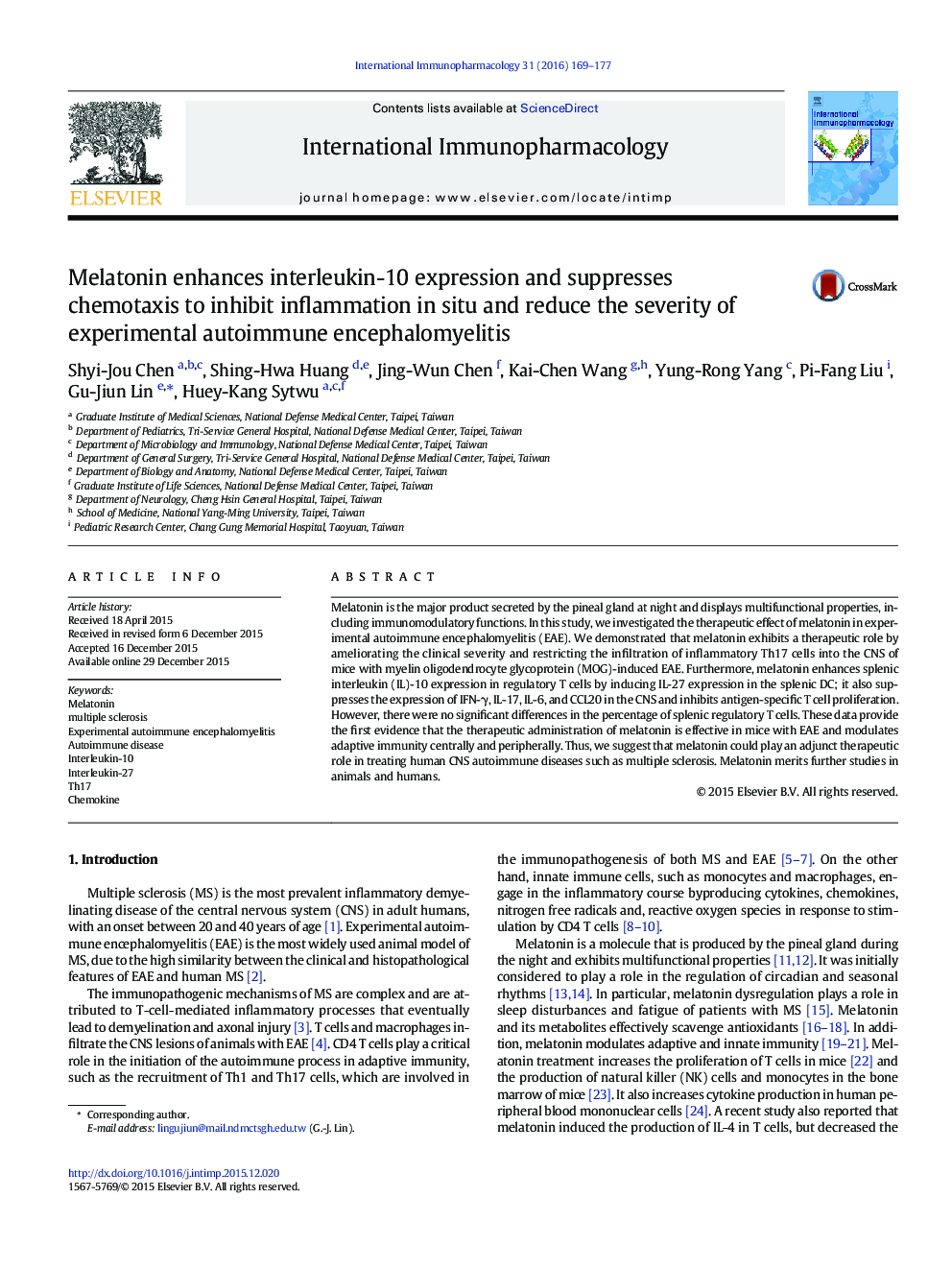| Article ID | Journal | Published Year | Pages | File Type |
|---|---|---|---|---|
| 5831899 | International Immunopharmacology | 2016 | 9 Pages |
â¢We report a therapeutic effect of melatonin in experimental autoimmune encephalomyelitis.â¢Melatonin treatment reduces the expression of IL-17 and the infiltration of Th17 cells in central nervous system.â¢Melatonin upregulates the expression of IL-10 via enhances the secretion of IL-27 in dendritic cells in the spleen.â¢The expressions of inflammatory chemokines and IL-6 in the spinal cord are reduced under melatonin treatment.
Melatonin is the major product secreted by the pineal gland at night and displays multifunctional properties, including immunomodulatory functions. In this study, we investigated the therapeutic effect of melatonin in experimental autoimmune encephalomyelitis (EAE). We demonstrated that melatonin exhibits a therapeutic role by ameliorating the clinical severity and restricting the infiltration of inflammatory Th17 cells into the CNS of mice with myelin oligodendrocyte glycoprotein (MOG)-induced EAE. Furthermore, melatonin enhances splenic interleukin (IL)-10 expression in regulatory T cells by inducing IL-27 expression in the splenic DC; it also suppresses the expression of IFN-γ, IL-17, IL-6, and CCL20 in the CNS and inhibits antigen-specific T cell proliferation. However, there were no significant differences in the percentage of splenic regulatory T cells. These data provide the first evidence that the therapeutic administration of melatonin is effective in mice with EAE and modulates adaptive immunity centrally and peripherally. Thus, we suggest that melatonin could play an adjunct therapeutic role in treating human CNS autoimmune diseases such as multiple sclerosis. Melatonin merits further studies in animals and humans.
